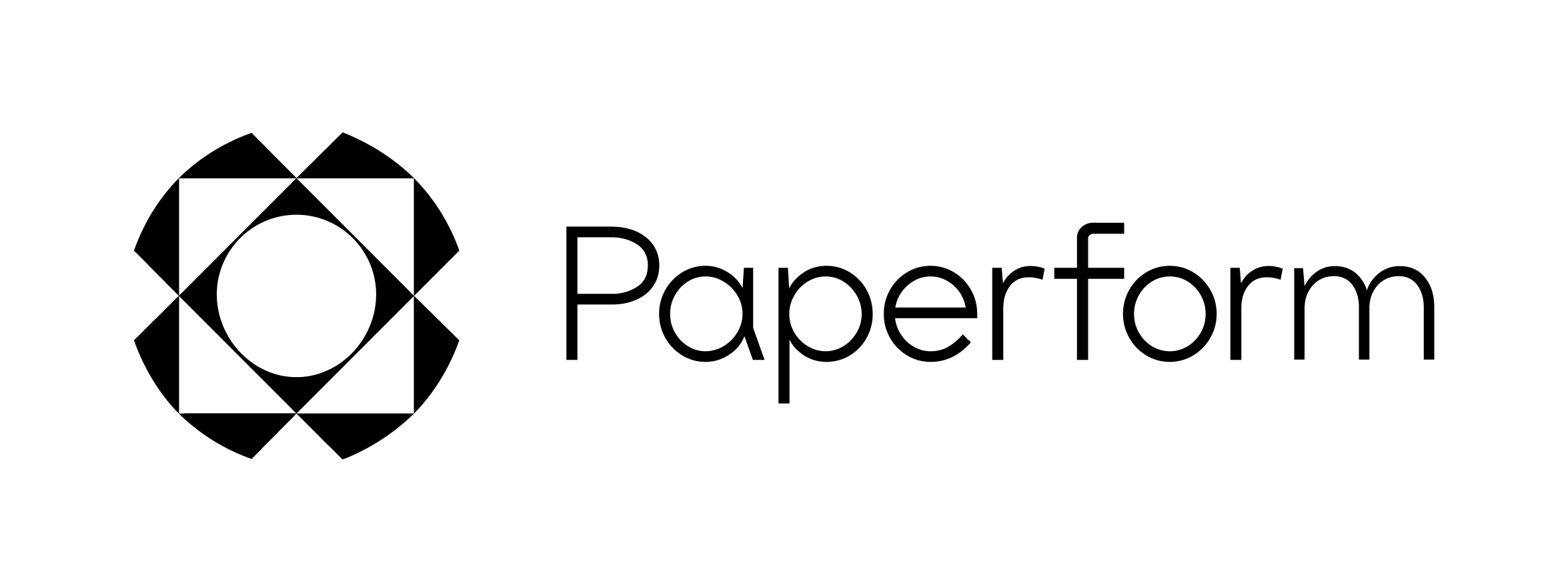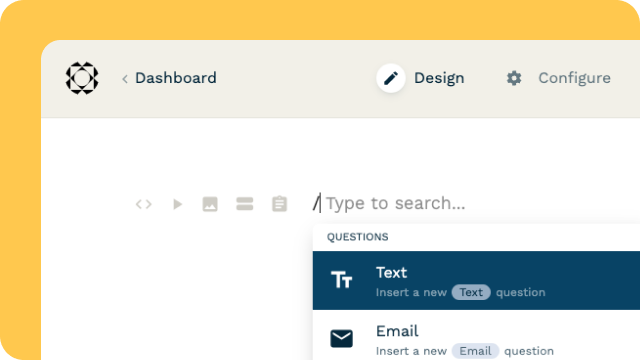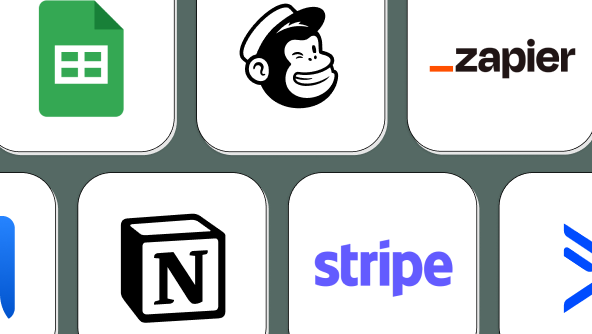
All Solutions

Explore all the solutions you can create with Paperform: surveys, quizzes, tests, payment forms, scheduling forms, and a whole lot more.
See all solutions











Connect with over 2,000 popular apps and software to improve productivity and automate workflows
See all integrationsSolutions
All Solutions

Explore all the solutions you can create with Paperform: surveys, quizzes, tests, payment forms, scheduling forms, and a whole lot more.
See all solutionsIntegrations

Connect with over 2,000 popular apps and software to improve productivity and automate workflows
See all integrationsResources
What is a request for information (RFI)?

A Request for Information (RFI) is a preliminary procurement document that gathers essential data from potential suppliers, without being a binding request for business. RFIs help make informed choices, save time, mitigate risks, and improve cost-efficiency in procurement. Key components of an RFI include organization details, project context, information description, dependent activities, response deadline, and signatures. Papersign offers efficiency and security in the contract signing process for procurement. RFIs serve as a valuable tool for screening and understanding options before formal agreements.
A Request for Information (RFI) is a document that helps you gather essential information from potential suppliers, contractors, or vendors.
Unlike other procurement documents like the Request for Proposal (RFP) and Request for Quotation (RFQ), an RFI is usually not a binding request for business.
It serves as a preliminary step to screen and understand your options before diving into more formal and committed agreements. It's like testing the waters before you take the plunge, giving you a clearer view of what's available in the marketplace.
Why use an RFI?
Implementing a Request for Information in your procurement process comes with a host of advantages that can streamline your operations and contribute to smarter decision-making.
- Informed choices: Gathering data on various suppliers equips you with the knowledge you need to select the most suitable partners for your projects.
- Save time: Filter out unsuitable options early in the procurement process, so you can focus on engaging with suppliers who can genuinely meet your requirements, rather than sifting through a mountain of unqualified options.
- Risk mitigation: Collect detailed data from potential suppliers, helping you identify and address potential risks well before they become actual problems.
- Cost efficiency: Understanding the landscape of suppliers and their offerings allows you to negotiate more effectively. This knowledge can result in better terms and pricing, ultimately making your procurement activities more cost-efficient.
Key components of an RFI?
When creating an RFI, it's important to include specific components to ensure you gather the information you need for an upcoming project. Specific key elements of your RFI could include:
- Organization name: Start with the name of your company or organization to establish who is making the request.
- Requestor details: Include the name and contact information of the individual responsible for the RFI to provide a point of contact for questions or clarifications.
- Project context: If the RFI is related to a specific project, make sure to specify that. This gives respondents a clearer idea of the context for the information being sought.
- Information description: Offer a detailed breakdown of the specific information you are seeking to get targeted and useful responses.
- Dependent activities: Mention any tasks or projects that are on hold until you receive the necessary information. This adds urgency and helps respondents understand the impact of their input.
- Response deadline: Clearly state the due date for the information requested, to guide timely responses.
- Signature and date: Include a section for the date and signature of the person making the request. While RFIs are not usually binding, a signature adds a level of formality and commitment.
By including these elements, you can make your RFI both comprehensive and effective, catering to all your procurement requirements.
Take the next step with Papersign
When you're ready to seal the deal with potential suppliers, Papersign is here to make the contract signing process smoother. Sign up free to learn how Papersign can add efficiency and security to your procurement.
Paperform (“Paperform” or “we”) provides the information, data, links and other materials on this page (collectively, “Information”) for informational and educational purposes only. We do not warrant or represent the accuracy, completeness, currency, or suitability of any Information for any use or purpose. Paperform is not a licensed legal provider nor is it providing any legal advice; the Information should not be so construed or used. Nothing contained in the Information is intended to create an attorney-client relationship, to replace the services of a licensed, trained attorney or legal professional, or to be a substitute for the legal advice of an attorney or trained legal professional licensed in your state/jurisdiction. Before taking any action, including using our services to execute contracts or other documents, You should always first consult an attorney licensed in your state/jurisdiction, in each instance, regarding the issues address by the Information. Please NEVER DISREGARD PROFESSIONAL LEGAL ADVICE OR DELAY IN SEEKING IT BECAUSE OF SOMETHING YOU HAVE READ IN THE INFORMATION.
Related reading
Deepak (Dee) Shukla, the dynamic founder of Pearl Lemon, built the leading SEO agency in London by l...
Here is the ultimate list of online form builders, what they do best, their pricing, and examples to...
When Luiz Sifuentes lost the platform powering his entire web design business, he rebuilt smarter—wi...
All of our product updates and big company news for Paperform and Papersign from Oct 24 - May 25 to ...